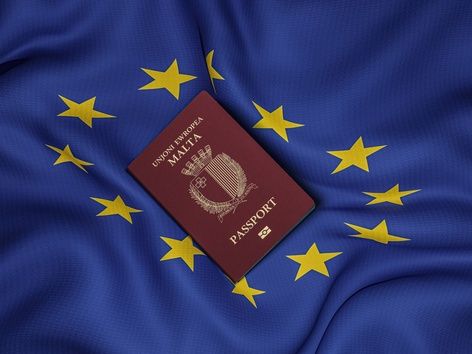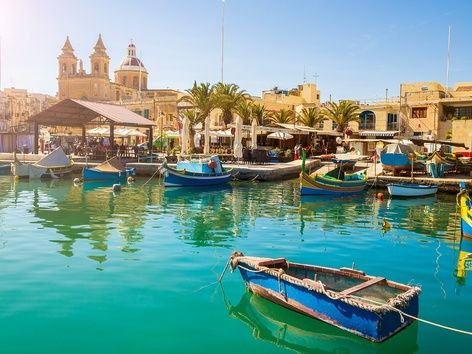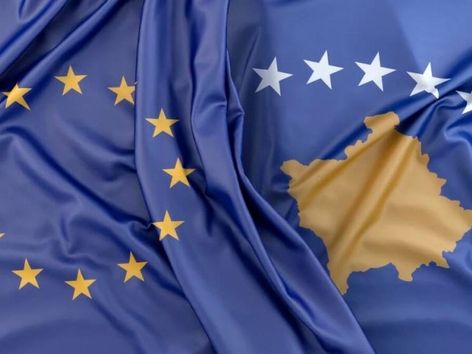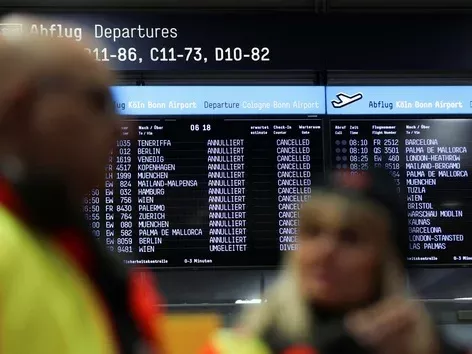The Maltese passport is recognised as the rarest passport in the world

Malta is a small country in the heart of the Mediterranean Sea, which has become one of the most desirable countries to live in thanks to its investment citizenship programme. Learn more about the reasons why the Maltese passport is unique
The Order of Malta, also known as the Knights of Malta, is much more than just a religious or humanitarian organisation. This organisation, which has a history of more than 1000 years, is a real sovereign state. It has its own UN status, constitution, passports, car licence plates and even stamps, although it has no territory of its own. This is a unique phenomenon that demonstrates that sovereignty can exist independently of specific territories, and its meaning can take many forms.
If you're planning a trip to Malta, use the guides from Visit World. These documents contain basic advice on visa applications, border crossing, employment, citizenship, and much more.
History of the state of Malta
The Knights originated as a separate order in Jerusalem around 1099, and in 1530 the King of Spain granted them the Maltese archipelago. Napoleon Bonaparte drove the Knights out of Malta during the French invasion of 1798, and today the order's headquarters is in Rome, Italy. According to Daniel de Petri Testaferrata, the Order's president, only about 100 of the 13,500 knights, ladies and chaplains live in the Maltese archipelago.
The first passports were issued by the Order of Malta in the 1300s, when its diplomats travelled to other countries with documents certifying their role as ambassadors. After the Second World War, the use of the diplomatic passport took on the features of passports used in other countries. Today, there are only about 500 diplomatic passports in circulation, making it the rarest passport in the world.
Reasons for the exclusivity of the Maltese passport
The crimson passport of the Order, which symbolises the blood of Christ, is reserved for members of the Sovereign Council, heads of diplomatic missions and their families. It is decorated with a golden inscription in French "Ordre Souverain Militaire de Malta" ("Sovereign Military Order of Malta") and the coat of arms.
The passports are issued to members of the government for the duration of their terms of office, but the Grand Masters' passports are the longest valid, as they are elected for 10 years and can serve two terms. Their resignation is mandatory until they reach the age of 85. Other passports are valid for four years and are used exclusively for diplomatic missions.
The passports are 44 pages long and bear the watermark of the Maltese cross without any additional decorations or images. Eugenio Agroldi di Robbiate, former communications director of the Order, describes the comical reactions of customs officers to the passport. "They had most likely never seen it before. Once, when I arrived at Bangkok airport, a crowd of operators at passport control wanted to see my rare passport and take a selfie with it."
Two-thirds of Schengen countries recognise the diplomatic passport, and the Order works closely with countries that do not have formal diplomatic relations. The Order also provides emergency medical and humanitarian assistance to victims of conflict or natural disasters, running hospitals, ambulance services, health centres and other social institutions.
History of chivalry in Malta
Travelling around Malta, you can learn a lot about the unique history of the Knights of Malta, although it is almost impossible to meet a knight. Nevertheless, the islands of Malta have numerous places that reveal the richness and uniqueness of this order.
Fort Sant'Angelo, located on the main island, impresses with its grandeur and massiveness. The fort was once the headquarters of the order and is still partially owned by the knights. You can visit the Chapel of St Anne at the top of the fort, where Grand Master de Valette prayed during the Great Siege of 1565.
Mdina, the medieval capital of Malta, is home to the audiovisual 3D show The Knights of Malta at Casa Magazzini. The exhibition offers detailed information on the history of the order in Malta, starting with the gift of the archipelago by the King of Spain in 1530.
In the capital Valletta, you can visit the National Library of Malta, which houses the Pie of the Postulate of Voluntaris, an important document confirming the sovereignty of the Order. The throne room of the Grand Master's Palace, where knights used to be received, is decorated with ancient frescoes and is a gem of architecture.
In the Casa Rocca Piccola, which belonged to the de Piro family, you can learn about another part of the Order's history. Another attractive place is Rosselli AX Privilege, the former home of a Maltese knight, which has been converted into a boutique hotel.
Although the possibility of meeting a Knight of the Order of Malta is unlikely, you will be exposed to the fascinating world of history and culture surrounding this distinguished order.
The editors of Visit World recommend using the Travel Guide for Malta for a comfortable and safe trip.
The guide is a detailed written document that contains basic advice on obtaining a visa, crossing the border, getting a job, citizenship, and much more. More details at the link.
Products from Visit World for a comfortable trip:
Checklist for obtaining a visa and necessary documents in Malta;
Legal advice on immigration issues in Malta;
Travel insurance for foreigners in Malta;
Medical insurance around the world.
More articles on the topic:
Moving to the EU: rules for obtaining a residence permit in France, Germany, Italy, the Netherlands and Spain
The most affordable places to buy real estate abroad in 2024
The most affordable tourist destinations: where to go on holiday in 2024
Flight cancellations in Finland: February strike by airport workers
Romania and Bulgaria will enter the Schengen zone: what changes for travellers?
France is recognised as the most popular tourist destination in 2024
The safest countries in Latin America: a detailed overview
5 travel myths that will stop you from long-term travel
The most dangerous countries in the world to visit in 2024: ranking by Independent
Recommended articles
2 min
Work
Work in Malta in 2024: accelerated procedure for obtaining permits for highly skilled workers
"The Specialized Employee Initiative" (SEI) in Malta as a new option for obtaining a work permit for highly skilled non-EU workers. Learn more about the eligibility requirements, features and benefits, as well as why Malta is actively attracting foreign workers
16 Jan. 2024
More details2 min
Travels
Visa-free regime for citizens of Kosovo: new rules for entering the EU
In 2008, Kosovo declared its independence from Serbia, but until 2024, the country remained outside the EU visa-free regime. However, since January 2024, the situation has changed, and Kosovo citizens have been able to enter many EU member states without the need for a visa. Learn more about the details of the visa-free regime for Kosovo citizens to the EU
06 Feb. 2024
More details3 min
Education
Australia tightens immigration rules: what should international students expect?
The tightening of immigration rules in Australia has caused concern among students, as they may be left without the opportunity to continue their studies. The Australian government's decision for 2023 has caused a wave of outrage among Indian students. Learn more about how Australia's immigration rule change may affect international students
05 Feb. 2024
More details1 min
Transport
Strikes in Europe: in which EU countries can we expect transport disruptions in February 2024?
Strikes are a regular occurrence in Europe, when workers stop working to fight for better pay and working conditions. They cause instability in public transportation and other industries. In particular, a large number of strikes are planned for February in different EU countries, which can significantly complicate the lives of residents and tourists. Find out more about where and when strikes will take place in February
08 Feb. 2024
More detailsAll materials and articles are owned by VisitWorld.Today and are protected by international intellectual property regulations. When using materials, approval from VisitWorld.Today is required.
